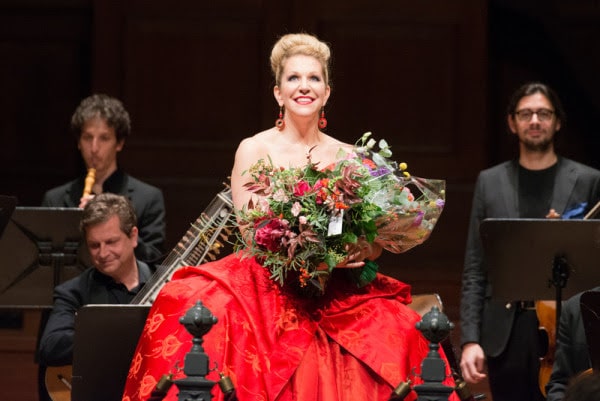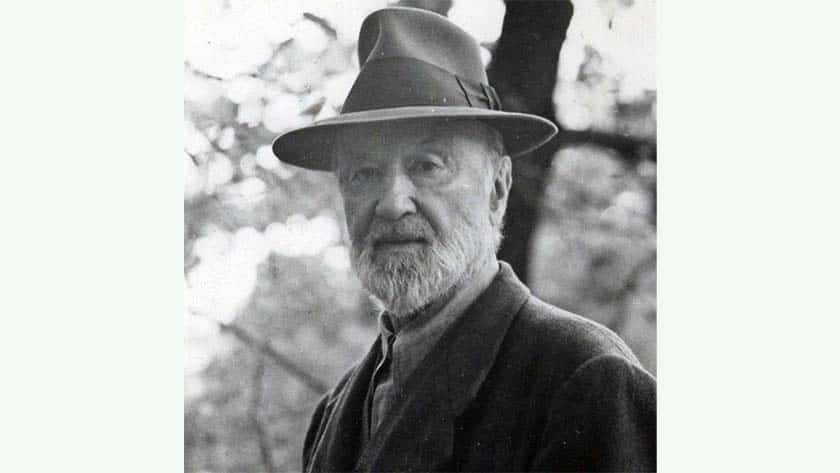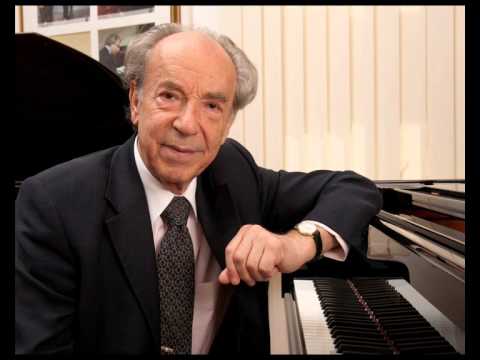A terrible mistake at the New York Times
mainMost people in media are aware that the Grey Lady is having a haircut. That means lots of journos being relieved of their jobs, some walking of their own volition, others being escorted to the door.
Among the latter, I learn today, is the veteran music critic and reporter, Allan Kozinn.

Let me declare an interest: Allan is a good colleague and personal friend. I commissioned him to write the best-ever short biography of the Beatles. We see eye to eye on some things, differ on many others.
Allan was for many years the most perceptive music critic on the arts desk, overlooked for promotion in various internal back-stabbings (working at the New York Times requires a heavy suit of moral body-armour).
In the last such round, Allan was taken off the critical beat and shunted off to the news desk to work on arts news stories.
Since the Times doesn’t know an arts story unless it comes from a handful of PRs, this must have been a frustrating experience for an expert judge of musical quality and news values. Allan performed the task uncomplaining. He receieved recent assurances that he was not at risk because he was incredibly productive and unquestionably knowledgeable.
Now he has been rewarded with the sack.
I feel terribly sorry for him. I feel even sorrier for the New York Times which, time after time, refuses to recognise and sensibly engage the experts under its own roof and, time after time, promotes mediocre keyboard pounders at the expense of refined and intelligent writers.
This is a rotten decision by a newspaper that cannot get much right, a newspaper that has lost its authority.
(Further arts casualties should emerge during the course of today. Indeed they have: see update here.)
UPDATE: Don’t bother to seek review in the Times. Click here.





What else is new ???????
I do agree.
“I feel even sorrier for the New York Times which, time after time, refuses to recognise and sensibly engage the experts under its own roof and, time after time, promotes mediocre keyboard pounders at the expense of refined and intelligent writers”
—–
I completely agree with this…. But let’s be honest: music critics are totally unnecessary for the essential communication between composer, performer and listener.
I strongly disagree! Critics – (good, bad or indifferent) are necessary for the continuation of history – among other things.
As one music critic I know puts it, “You’ll miss us when we’re gone.”
“I commissioned him to write the best-ever short biography of the Beatles.”
Then you Sir are my hero too!
I can’t agree that critics are superfluous. A good review provides an unfamiliar listener with the information necessary to decide whether to attend the next performance or purchase an album by a performer.
But it’s still just one person’s opinion. Just because the critic likes or hates something doesn’t mean the reader will share that opinion.
You seem to be talking about reviewers, and I would argue that even those who do little else do offer a valuable service. But good critics do so much more. They are the first-response historians of whatever art form they are writing about, telling what was offered at a particular place and time. This is invaluable social history. How else would we know about the stunned response to the first performances of Rite of Spring? The emergence of some wonderful new singer, dancer, actor, sometimes as a replacement, who will come to take the world by storm? (Isn’t that really how Pavarotti got noticed for the first time in a major way?). It is not just “one person’s opinion.” Anybody can offer an opinion. It is, unless a bad hire is made and fostered, which is not the case here, an informed opinion with a context of understanding of medium, artist, audience.
Very sad. Every musician in NYC respects the guy.
Allan has consistently been much more than “a critic”. He’s been an important force and advocate for musical diversity. This is revolting, but unsurprising news.
This is a dark day for music journalism in New York–admittedly already dim. Bad news in any case.
Let’s be honest. This unfortunate incident is endemic of a much larger trend in mainstream news which has for decades marginalized the visibility of the arts and anything that validates a higher aesthetic viewpoint for readers.
Remember when classical musicians made the cover of TIME and NEWSWEEK?
De-evolution.
What a travesty! I don’t know what else to say.
Yet another reminder of the decline of a society. It is so very sad to be witness to history and be unable to do a thing about it. The world is changing before our eyes, and no one can seem to be able to stop it. Very sad indeed.
Ugh, terrible news.
Maybe you can commission him to write another bio about a pop/rock group. Yawn.
You would be appalled at what passes for music criticism in other, smaller American cities with newspapers that still employ classical music critics (granted, on a per-service basis). In our not-Seattle-or-Portland city in the Pacific Northwest, we have a realtor whose main qualification is “classical music aficionado” reviewing symphony orchestra concerts, writing reviews that are bland and are little more than after-the-fact advertising. I have always believed that a good critic can positively impact the level of the arts in a community, because the artists and performers know there is someone who knows what they are seeing or hearing, and they have a pen. They can play a valuable role recording the diversity of a community’s cultural life. Unfortunately, that is not the case here. I will often tell my students that if they want to see the way a review should be written, they should look at the Times. Sadly, that may no longer be the case.
Can it be that there no longer is an audience for the likes of Mr. Kozinn.
That whatever or how well he wrote
matters little in todays’ world of music .
The dozen or so people that are aghast at his departure carry little or no weight .It is a business and for
whatever their reasons he didn’t fit in with the present structure.That the current head reviewer of “classical ” music survives is puzzling as I am unaware of anyone who pays serious attention to any of his observations .
Yet another reason to stop reading the hopelessly senile Grey Lady.
BTW, Mr. Kozinn wrote a wonderful biography of Mischa Elman.
This is the problem , Mr. Kozinn may
very well have written a wonderful bio of Mischa Elman but who in todays’ concert world cares ? the odd fiddle
buff ? if that . The world has moved on
but the world of “classical ” music world remains in a time warp . The paper
being a business can ill afford catering
to a minority that shrinks more and more each year .
You’ve opened your mouth and removed all doubt.
Kozinn is a walking encyclopedia of music knowledge. He always knew more about my clients than I did (to a point where I would call him to see if he could confirm a rumor AND I WAS PART OF THE SO-CALLED INNER CIRCLE!!!). His knowledge is on a par with the late great Robert Palmer. Jann Wenner would do well to scoop him up asap for his troubled Rolling Stone. Its amazing that self-loathing sour pusses like Jon Pareles continue to hammer out their opinions in the NYT and a scholar like Kozinn is shown the door. A sad day indeed.
Allan is a valued (not to mention generous) colleague. the way he’s being treated is disgraceful. It’s a shame to hear such a voice silenced by a major newspaper and hopefully it will sound forth again wishing him all success
I worked with Allan a number of years ago, and was so impressed at his professionalism and knowledge. This is a hugely disappointing news. I hope Allan lands on his feet and continues to be able to share his talents.
Put succinctly, this sucks.
Print journalism itself is on its way out. There will still be blogs and the critics who write them so relax. I give the Times 8 years- it’s on it’s way out. The internet has changed traditional journalism- most college students read online blogs and papers. Today, you can videotape performances and reactions.
Wow. I read about these fears everywhere. It’s hard to avoid them, honestly. If you care at all about the future of the art form, I highly suggest that you quit speaking about classical music as you are afraid it is becoming, and instead talk about it as it truly is: alive, thriving, and beautiful. No one wants to listen to something they’ve been told is dead or dying, but hope is contagious. Hope brings support.
Perhaps I’m naive, having lived in Oregon nearly the entirety of my life, but over here we’re experiencing something beautiful. An independent classical scene is growing. Amateur orchestras are popping up. The Oregon Symphony has gained considerably in prominence and viewership over the past decade or two. Classical crossover genres are really quite popular. I just can’t find it in me to kill all of this joy, act as if classical music is some sort of endangered museum art, and carry around an air of indignation at our society’s lack of culture.
Maybe I’m crazy, but I don’t think classical music needs saving. I don’t think classical music is old. I think classical music is now, is important, is American, is wonderful. Beethoven wrote as a German, 200 years ago. John Adams writes as an American, in the country as it stands today. In my experience, his music touches quite a cross section of the population to which it is exposed.
Classical music doesn’t need saving; it needs refocusing. And it needs supporters, not conservationists. Perhaps I’m wrong. But I think I’d rather live in hope than fear.
The elephant in the back of the room is
“evolution”.The sooner one understands this the better for all.
The noise made at the departure of Mr. Kozinn is much like the chicken coop squawking
when sensing a fox lurking about.I don’t doubt that Mr. Kozinn has
a brilliant mind and much of his writings reflect this,but what audience
he had was for the Times a spit in the ocean . There was a period when for many, being a complete person and not to be considered a total boor knowledge of “classical” music was thought to be essential,or at least one was expected to have
a nodding aquaintance with the art .
A good example would be Uncle Miltie
dragging out the violinist Rabin to saw his way through a light work to
supposedly give his show a little “class”.But millions upon millions soon
discovered that to climb the ladder
of success and having that full life the appreciation of so
called” classical “music was not a necessity. So here we are a new world,…..
Dudamel gives you the 9th . with fire works, I suppose to keep the great unwashed from falling asleep and
violinists play concertos while swinging from a trapeze which seems fitting for most violinists,to the Asians
who in most cases view what is left of the art as a stepping stone to fame and fortune, none serve the art .Mr. Kozinn had his day
as did the many others. We wish him the best . Tyler poking about in the ashes for a glowing ember is wishful
thinking . Here is a glowing ember- PBS week after week supposedly finds interest in music… play dreadful singer guitarists with station air heads trying to sound intelligent and insightful waxing poetic over the second rate . It is called evolution .
Those poking at the body of classical music may find it sleeping, but not dead. Milka’s posts are filled with countless errors and false conclusions. Time would be better spent admiring the amazing level and diversity of those participating in classical music, on both sides of the proscenium. The problem is not evolution but education. Historically, those lacking in the latter have found only what’s wrong with an inextinguishable art form. Time for thinking to evolve.
Education is always part of evolution and
education has evolved to the point where teaching music is not thought of as a
necessity .In past generations solfege
was taught in most public schools as
part of the education of the young today one would be hard pressed to find the discipline taught in any public school .The rare exception means little.
There was a time when most households had an upright piano and
if the world was good a baby grand
and part of the education of a child
was to play the piano no matter
how much the poor kid hated it .In
well educated households today the
child plays video games while trucks offload
grand pianos & uprights to the city dump .It is easy to find countless errors and false conclusions especially if one has not a thorough grasp
of the art , from where it has come to
where it is at the present day . The so
called amazing level of today is no better than the past – just easier access -the big difference being that with past players one could almost always identify the artist sight unseen
today most all sound as if from the
same cookie cutter . It is known as evolution
Thank you for continuing to prove my point. I believe it is you, dear writer, who does not have a thorough grasp of the art, and has therefore made erroneous statements, not the least of which is the racist one concerning Asian musicians. As for Michael Rabin sawing, the only saw here is the old one you brought out concerning classical music.
I think that reviews can/should be fair, truthful and not too full of technical shop talk, while giving the reader a sense of having been there through vivid and descriptive writing. At least that’s my natural approach: http://clevelandclassical.com/?s=guytano+parks